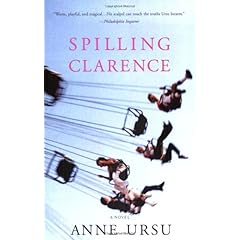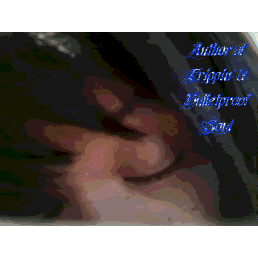Remembering - A book review

I've seen several news accounts over the last few weeks about Jeffrey Alan Ingram, 40, the man with dissociative fugue (total amnesia), from Washington who was traveling to Canada and wound up in Colorado. After appearing on national tv where he asked people to call in if they recognized him, he was reunited with his fiancé. Upon seeing her, he said while her face wasn’t familiar to him, her heart was.
Wow! How touchingly heartbreaking.
After seeing this, I was reminded of a book I read not long ago. It's called Spilling Clarence by Anne Ursu. And it's about the opposite of forgetting everything -- it's about remembering everything!
DESCRIPTION
Originally released in 2002, the premise of the novel is simple: What if you could suddenly remember everything that ever happened to you: every joy and every sorrow you endured? Would it be a blessing or curse?
This is the fate the residents of the small, close-knit town of Clarence must face. An explosion at the town's psychopharmaceutical plant has sent mind-altering vapors into the air, a chemical called Deletrium, which unlocks the townfolks’ hidden and repressed memories. The past comes flooding back without the buffer of time and people find themselves drowning in remembrances of love, death, war, childhood, and happier/sadder times. Ultimately the book explores our relationships with our histories and pasts, the unreliability of memory and the power of forgetting.
The main six characters that we take a trek down memory lane with are: Bennie, a psych teacher and widower (who yearns for his dead wife) and his smart but hypersensitive daughter, Sophie. There’s also Bennie’s writer mom, Madeline and Calvin, the war hero that’s courting her. And there’s Susannah (who struggles with memories of a mentally ill mother) and her sexy, but emotionally-absent scientist fiancé, Todd.
ANALYSIS
As the author draws you into the story, you can't help but get lost in your own memories -- and you’re reminded of just how memories shape and control our worlds.
One character in the book states: “Memory induces pleasure. It induces pain. We guide our lives by what we think our histories are. But sometimes we can’t or don’t want to remember. We forget our pasts and then we create our pasts, forgetting we’ve created them.”
Another character asks: “Is the mind’s ability to forget and distort the past essential for our survival? How much do we gain or lose by forgetting?” He also observes: “Our minds have a great potential to hurt us. What a delicate balance our minds must maintain to keep us sane.”
This is so true and falls in line with Freud’s theory -- for every forgotten or mispronounced word, name or deed, there is a reason behind the forgetting -- there is something the mind wishes to suppress.
Do you agree? Are we all just a few memories away from insanity?
I thought the concept behind the book, Spilling Clarence, was great -- very unique, original and interesting. Are our memories 100% our own? Or are they fabricated and shaded throughout the years by us and others? What would we do if we were forced to remember -- and in essence -- relive every single thing that ever happened to us? If I could relive every memory of my past -- would I want to? Or would I only want to remember the good?
If the good and bad of our histories combined make us into the people we are -- then shouldn’t we want to embrace both good and bad memories? In truth -- don’t our most trying times, darkest moments, worst memories and biggest mistakes contribute most to our growth, change, strength, and wisdom? During our toughest times (which we'd be more inclined to want to forget) -- don’t we learn life’s most important lessons and the most about ourselves?
REVIEW
While I fell in love with the concept of Spilling Clarence (I give the concept a 5!), I was disappointed by its execution. Usually, I like quiet, make-you-think novels that delve into psychological issues. But for a book about memories and personal histories, I found this to be too slow, dry, and boring. It was not the emotionally-charged roller coaster ride I expected. I felt a distance between me and the characters. I never connected emotionally with any of the characters or liked them much. I did admire Bennie’s love for his dead wife and I felt bad for Susannah being raised by a mentally-ill woman but even then, the remembrances weren’t as beautiful or gut-wrenching as you’d expect! The book's saving grace? The questions the book raises are endless and it does make you stop and think.
Questions: If you could relive and remember every memory of your past, would you or would you just want to relive the good? Are there memories you want to always remember? Are there memories you would like to forget? How important do you think memory is to the development of who we are as adults?




This was a very thought provoking post. I feel that it would be very healthy to remember even those terrible things that our mind has suppressed. It won't feel good but it may help us to finally get to the healing part. I can't imagine what I have suppressed in my memory? I also had another thought. Is that what happens at the moment you are closest to death? Do you recall all of those things (Good or Bad) that you've encountered in your life. I guess that the moment can be either torchering or pleasant depending on how you lived your life or how much pain did you have to endure? All in all, my theory would seem unfair to the person who was good, but suffered because of the actions of someone else. An example would be our ancestors who were held captive as slaves. It would be horrible if they could remember all of the worst moments at the time of transition. Then again, perhaps it would make rest that much more peaceful. So, I'll think about this and get back to you. lol! :)
I can remember so much about my life the good and the bad. But I am sure that I would most defintiely want to remember the good only. A positive mind and energy keeps you healthy.
@ SB -- You bring up a lot of good points. It would be horrible for our ancestors to remember those worst moments during their transitions and throughout their horrific captivity as slaves.
Just think, what you do remember is just a small portion of all that’s happened in your life. I bet you'd be surprised at what you've suppressed. And just because we can't remember things --does that mean the mind has made a conscious decision to suppress it or has the mind just made room for the really important stuff that would most determine who we would become? I'm curious how our minds determine what we remember and what we forget? Clearly I'm spending way too much time thinking about this! LOL. The mind is such an interesting organ!
Anyway…on to a different topic...another nice hat I see!:-) You definitely have that 'what's happenin' vibe working for ya. Takes me back to the days of Raj, Rerun and DeWayne (who I had a major crush on!) Hee...
@ Rose -- I'd want to stay positive too -- so I would probably only want to remember the good memories. Thanks for your comment. Hold on tight and treasure all the good things that you do remember.
Sounds like an interesting read. I'll amazon it!
LOL! "Hey, Hey, Hey! What's Happening!" :)You're funny! By the way, keep on thinking. We have to exercise this brain of ours.
Michelle said...
Dr. Deb -- I bet you would love the book with all that psych stuff! If you read it let me know what you think. Maybe I'm way off with my rating!
SB -- so how good are you at popping and locking? Rerun (Fred Berry) was the master! I can see you now busting a move! Hee :-)
We remember what we want to remember and forget those things that we choose to forget. Eventually, what we choose to forget comes back to remind us who we once were and what we once did. Remembering who we are allows us to accept the changes and challenges in our lives so that we can live to make tomorrow a better tomorrow.
©2006 Dahveed
Post a Comment
<< Home